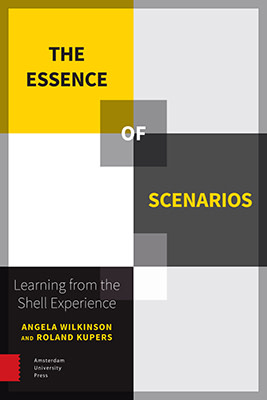Reviews
"This is a major case study of scenario planning, something that is not easily available to the student of scenario planning." -
Kees van der Heijden, Director and co-founder of the Global Business Network (GBN) in the United States. Emeritus Professor, Strathclyde University. Former head of the Business Environment Division in Group Planning at Royal Dutch/Shell and author of the bestselling business book 'Scenarios: the Art of Strategic Conversation'
"With unique access to all the Shell players, this study, should be extremely useful for all those companies and governments that have already introduced or that will be introducing scenario planning in the near future. It will help their managers to learn much more quickly how to improve their planning procedures and better deal with the unknowable future. The book shows the value of scenario use as a sustained practice, rather than as a one-off exercise." -- Arie de Geus, Former Corporate Planning Director at Royal Dutch Shell.
"Shell stands as birthplace of business scenarios. While the Shell method has been extensively covered as a tool, what is needed is a broader appreciation of the contexts of scenario development As someone who teaches scenario planning at the graduate and undergraduate level, I would definitely start with this story as a frame to talk about the diverse practices that have sprouted up around and since Shell's landmark practice."-- Cynthia Selin, Assistant Professor, School of Sustainability, Consortium for Science, Policy and Outcomes, Arizona State University
"For anyone interested in following the history of Shell's work on developing and seeking to apply scenarios, this is an essential read." -- Michael Jefferson, ESCP Europe Business School, London

